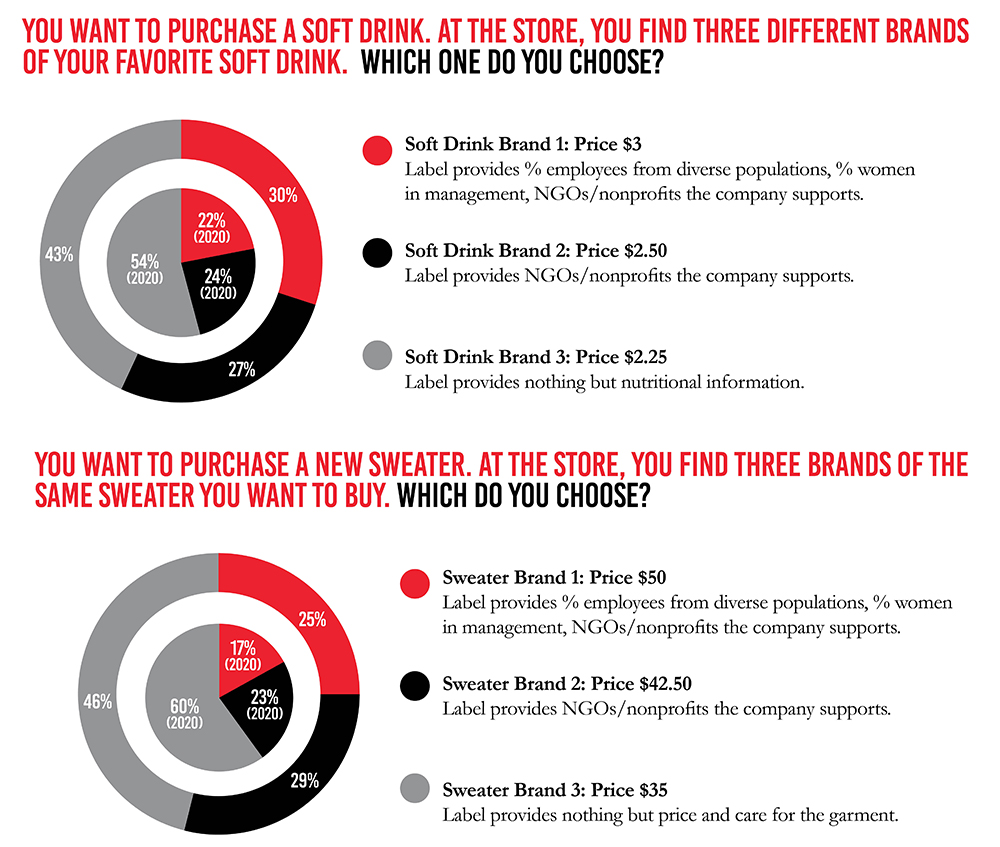Not every consumer wants you to address social issues (or at least they don’t act that way)

In a room packed with corporate marketing leaders and their respective brand marketing colleagues, I was up to talk about consumer interests and engagement in social issues. I opened with a key question: “How many of you think your consumers want your company/brand to address social issues?” Every person in the room raised their hand. One person even said, “Demand is a better word.”
Next question: “How many of you have consumers who actually have made decisions based on your position on social issues?” Fewer people raised their hands, and a lot of skeptical looks from the rest eventually forced the central question: “Do we really know consumers make choices because of our positions?”
The most likely answer is “No.” We know this from data we collect on social issue engagement with brands and their consumers. Consumers do have high expectations for companies to stand up and actively support issues, but—and this is a big “but”—not every consumer is acting with their wallet to drive home those expectations.
The data reveal three types of socially minded consumers that brands should be aware of as they navigate the social issue waters.
The activist consumer: The activist consumer is uncommonly knowledgeable about all issues related to a company; this might include its impact on climate change, supply chains, human rights, etc. These are by far the most vocal and active consumers; activist consumers made up nearly 10 percent of one brand’s total consumer audience. We have seen many brands react to pressure from activist consumers by focusing on this group’s issues and desires over those of other consumers. An important point to note, however, is that the activist consumer may not buy, rent, use, or otherwise interact with the company and its products, goods, or services. Yet, given the role those brands and offerings may play within the activist consumer’s sphere of interest, they may still apply pressure on companies where they want to see change.
The socially conscious consumer: The socially conscious consumer is knowledgeable about issues and makes socially conscious purchasing decisions. They pay particular attention to a company’s stated position, practices, and actions within its communities and the broader public. The socially conscious consumer looks for a company’s involvement, or lack thereof, in social issues, which they measure to a large degree by how closely a brand, product, or service aligns with the issues, organizations, and initiatives this consumer cares about. Most often, the individual is looking to see a company’s roles and responsibilities within the community shared on packaging and in other visible areas of the company.
The social issue-interested consumer: This consumer is aware of social issues and strives to make socially conscious decisions whenever possible. Rather than proactively taking action with regard to a company, however, they support social issues through signing petitions and liking or sharing content on social media platforms. When a brand’s position on an issue aligns with these consumers’ own, brand affinity and loyalty peak and contribute to a positive overall view of the company. Therefore, this consumer needs consistent nudging, reminders, and calls to action to sustain and amplify their engagement; interest does not always turn into action because it must compete with life’s other demands.
(Source: The Corporate Social Mind Annual Review 2021)
Of course, there are other consumers out there, such as price-fixed consumers who choose based only on price, but our data show that these three categories represent the segments of a brand’s consumers that are truly relevant to social issue engagement.
Impact and (not or) education
A brand’s real challenge in the social issue space is to make sure they hear, engage, and support all three consumer segments discussed above on the journey to educating and informing consumers and nudging them toward new behaviors. Being aligned internally is key, but we find departments and verticals in so many brands struggling to address consumer segments with cohesive, complementary strategies. For instance, a PR team may be responding to the activist consumer’s demands with one message, while the brand team is focused on communicating and engaging with a different, possibly conflicting, message to the socially interested consumer.
We started with the question, “How many of you have consumers who actually have made decisions based on your position on social issues?” The answer and the level of certainty of the answer depends greatly on the role your company chooses to play in the social issue-consumer relationship with all kinds of consumers. Our research shows that companies must strive to understand where they can truly be impactful and with what social issue consumer audience. Not everyone is looking to be involved or active, but taking the step to inform and direct interested consumers to learn about relevant causes and movements is often the first step.
Derrick Feldmann (@derrickfeldmann) is the founder of the Millennial Impact Project, lead researcher at Cause & Social Influence, and the author of The Corporate Social Mind. Read more by Derrick.






